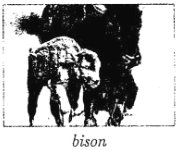题目内容
【题目】假定英语课上老师要求同桌之间交换修改作文,请你修改你同桌写的以下作文。文中共有10处语言错误,每句中最多有两处。错误涉及一个单词的增加、删除或修改。
增加:在缺词处加一个漏字符号(∧),并在其下面写出该加的词。
删除:把多余的词用斜线(\)划掉。
修改:在错的词下划一横线,并在该词下面写出修改后的词。
注意:1.每处错误及其修改均仅限一词;2.只允许修改10处,多者(从第11处起)不计分。
Last summer, to my delight, I got a chance to go to the United Kingdom. I was eager to see how England was like. Although my parents objected to my decision at first, but finally they were persuaded. It was the first time that I have travelled abroad alone. Felt excited, I boarded the plane. Suddenly, however, I found my luggages gone and felt helplessly. It was on that moment that the airhostess came to my assistance. After helping me find it back, she suggested that I attached a label to my suitcase on my next journey. I was thankful to the kind lady for his help! What unforgettable trip!
【答案】
【解析】小题1 考查关系词。句意:我渴望看看英国是什么样的。动词see后面跟宾语从句,根据介词like“像”可以推断出从句中缺少宾语,用关系代词what,故how改为what。
小题2 考查连词。句意:尽管父母起初反对我的决定,但是最后他们被说服了。Although和but 不能连用,故去掉but。
小题3 考查冠词。句意:这是我第一次独自出国旅行。it was +第几次+that从句,从句中用过去分词,故have改为had。
小题4 考查过去分词。句意:感激很兴奋,我登上了飞机,前后主语一致,主语“我”和感觉是主动关系,用现在分词,故Felt 改为Feeling。
小题5 考查名词。句意:我发现行李不见了,不可数名词没有复数形式,故luggages 改为luggage。
小题6 考查形容词。句意:我发现自己的行李不见了,我感到很无助。feel 系动词后用形容词,故helplessly改为helpless。
小题7 考查介词。句意:这时空姐过来帮助我。at that moment“就在这时”固定短语,故填at。
小题8 考查虚拟语气。句意:找到行李后,空姐建议我在行李上附上标签,suggest后面的宾语从句用should+动词原形,should可以省略,故attached改为attach。
小题9 考查代词。句意:我感激这个女士的帮助,lady“女士”,故his改为her。
小题10 考查冠词。句意:多么难忘的一次旅行啊!感叹句的构成:what+冠词+形容词+名词,本句中缺少不定冠词表示“一次”,unforgettable是元音发音的开头,只能填an,故填an。




